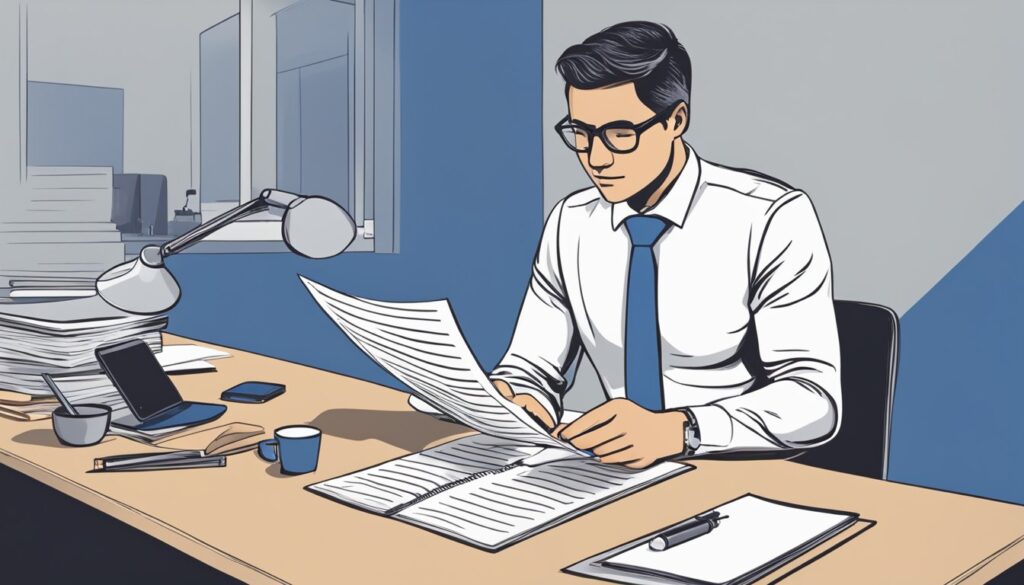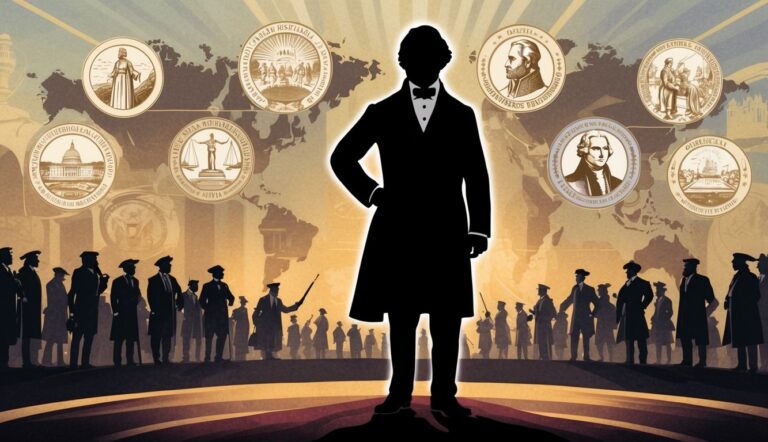100 Most Important Interview Questions for Every Job Seeker

Preparing for a job interview can be a tedious task. As a job seeker, knowing what to expect can make all the difference.
Familiarizing yourself with the 100 most important interview questions can give you a significant advantage for the Interview day.
These questions span a wide range of topics, from your career goals to how you handle conflict at work.

Interviewers, or hiring managers, use these questions to gauge your qualifications, experience, and how well you fit the role. By preparing thoughtful and concise answers, you can effectively demonstrate that you are the right candidate for the job.
Remember, the right preparation can turn a interview into a confident conversation.
Understanding the types of questions asked can help you focus your study efforts.
Questions may ask you to describe past work experiences, explain how you handle challenges, or detail your skills and qualifications.
Knowing these questions ahead of time will not only boost your confidence but also showcase your preparedness and commitment to the role.
Understanding the Interview Process

The interview process helps employers find the best candidates for a job. It’s your chance to show you fit the job description and align with the company culture.
Typically, the process starts with a phone or video screening. This step allows hiring managers to identify if your skills match the job requirements. Next, you may have one or more in-person interviews.
Here, you might answer common job interview questions.
This is where you can share your qualifications and demonstrate how you can contribute to the company.
Reference checks or background checks often follow. These checks verify your work history and may include contacting previous employers. Job offers are usually the final step. If you get an offer, you may need to negotiate terms before accepting.
Preparation is key. Research the company, know its values, and practice your responses.
Understanding each part of the interview process will make you feel more confident and ready to succeed.
Preparation Strategies
Preparing for a job interview involves understanding the job description and practicing with mock interviews. This helps you align your answers with the company culture, mission, and values, giving you an edge over other candidates.
Understanding the Job Description
Before your interview, review the job description carefully.
Highlight key responsibilities, skills, and qualifications required for the role. This helps in tailoring your answers to what’s most important for the position.
Study the company’s mission and values.
Make a list of the most important skills and experiences that match the job description.
Use this list to prepare answers that highlight your strengths and how they align with the job requirements.
Mock Interviews and Practice
Practice makes perfect! Conduct mock interviews with friends or family members. This helps you get comfortable answering common and tough questions.
Practice answering questions about your past experiences and how they relate to the job.
Use online resources to find list of common interview questions.
Create a script of your answers but avoid memorizing them word for word. This keeps your responses natural and authentic.
Finally, record your mock interviews, if possible. Reviewing these recordings can help you identify areas for improvement.
100 Common Interview Questions

Preparing for a job interview is crucial. Here are 100 Common Interview Questions to help you get ready:
Personal & Behavioral
- Tell me about yourself in a way that’s not on your resume.
- What are your greatest strengths and weaknesses?
- How do you handle stress and pressure?
- Describe a situation where you failed. How did you handle it?
- How do you prioritize tasks when you have multiple deadlines?
- Give an example of a time you took the lead on a project.
- How do you motivate yourself when working on a project you don’t enjoy?
- Tell me about a time you had to learn something new quickly.
- How do you deal with difficult team members or colleagues?
- What’s the biggest challenge you’ve faced in your career and how did you overcome it?
- Describe a time when you went above and beyond for work.
- Have you ever had to deal with a difficult client or stakeholder? How did you manage it?
- How do you manage your time effectively?
- Tell me about a time when you had to manage conflicting priorities.
- How do you handle constructive criticism?
- What motivates you to perform well in your job?
- Give an example of a time you worked under tight deadlines.
- Have you ever made a decision that wasn’t popular? How did you handle it?
- How do you approach risk-taking?
- Tell me about a time when you had to convince someone to do something your way.
Leadership & Teamwork
- How do you lead a team in a high-pressure situation?
- What’s your approach to conflict resolution within a team?
- How do you ensure that all team members feel valued?
- Can you describe a time when you had to make a difficult decision as a leader?
- How do you deal with team members who aren’t meeting expectations?
- Tell me about a time you had to manage a team through change.
- How do you handle competing personalities within a team?
- How do you inspire a team to meet a challenging goal?
- What do you think is the most important trait of a good leader?
- How do you delegate tasks effectively?
- Describe a time you managed a remote team.
- How do you manage up, i.e., communicate with higher-level executives or stakeholders?
- How do you ensure accountability in your team?
- What’s your approach to performance reviews?
- Can you describe a time when you had to mentor or coach someone?
- What strategies do you use to improve team productivity?
- How do you encourage innovation in a team setting?
- How do you deal with underperforming employees?
- What’s your philosophy on teamwork?
- Describe your leadership style in three words.
Problem-Solving & Decision Making
- Tell me about a time you had to solve a problem with limited resources.
- Describe a situation where you had to make a decision without all the necessary information.
- How do you approach complex problems?
- What’s the toughest decision you’ve made recently?
- Describe a time when you had to analyze a lot of data to make a decision.
- How do you approach a problem when your first solution doesn’t work?
- What’s your decision-making process like?
- Tell me about a time when you solved a problem in a creative way.
- How do you weigh pros and cons before making a decision?
- What’s your approach to making decisions under uncertainty?
- Describe a situation where you had to make a decision that affected a large part of the organization.
- Have you ever had to make an unpopular decision? How did you handle it?
- How do you balance risk when making decisions?
- Tell me about a time you used data to drive a decision.
- How do you handle ambiguity in problem-solving?
- Give an example of a time you had to adjust your approach to solve a problem.
- How do you prioritize when faced with multiple pressing issues?
- Tell me about a time when you had to act quickly to resolve a situation.
- What’s your strategy for handling a problem you’ve never encountered before?
- How do you involve others in the decision-making process?
Technical & Industry-Specific
- What trends do you see impacting this industry in the next 5 years?
- Tell me about a time you had to learn a new technology for a project.
- How do you stay up to date with industry changes?
- What’s the biggest technical challenge you’ve faced in your career?
- How do you approach troubleshooting a problem?
- Describe a time when you had to explain a complex technical issue to a non-technical person.
- What’s your process for evaluating new technologies or tools?
- Have you ever had to make a technical decision that was against popular opinion?
- How do you ensure quality and accuracy in your work?
- Can you explain a complex problem in simple terms?
- What are some common challenges in this field, and how do you overcome them?
- How do you handle a project when you lack some of the technical expertise needed?
- What’s the most innovative solution you’ve implemented?
- How do you approach documentation and knowledge sharing in your role?
- Have you ever managed a project that required integrating multiple technologies?
- Describe a time you’ve worked with cross-functional teams on a technical issue.
- How do you deal with constantly changing technical requirements?
- What’s the most challenging project you’ve worked on, and why?
- How do you approach scaling a solution for larger use cases?
- What role does data analysis play in your current work?
Strategic Thinking & Vision
- How do you align your team’s work with the company’s goals?
- What’s your approach to long-term planning?
- Tell me about a time you had to pivot your strategy in response to market changes.
- How do you set priorities for your team?
- What’s your approach to balancing short-term results with long-term goals?
- How do you keep your team focused on the big picture?
- Can you give an example of a time when you had to rethink your approach mid-project?
- How do you identify new opportunities for growth?
- What’s your approach to competitive analysis?
- Describe a time when you had to make a decision that impacted the future direction of a project or company.
Culture Fit & Company Knowledge
- Why do you want to work at this company?
- How do you handle a situation where you disagree with your company’s direction?
- How do you contribute to maintaining a positive work culture?
- What do you think are the most important qualities for someone in this role at our company?
- How do you align your personal values with the company’s mission?
- Tell me about a time you helped shape the culture at a previous job.
- What do you think sets our company apart from its competitors?
- How do you see yourself growing with our company?
- What are you hoping to achieve in your first 6 months at this company?
- How do you handle situations where you think company policies need to change?
This list covers a wide range of difficult and thought-provoking questions designed to test your adaptability, leadership, problem-solving, technical knowledge, and cultural fit.
Advanced Interview Topics

In advanced interviews, you’ll often face questions that delve into problem-solving skills and your ability to handle conflict resolution. These questions help employers assess how well you deal with pressure, adversity, and dynamic team environments.
Problem-Solving and Conflict Resolution
Employers want to know how you handle challenges. They may ask you to describe a time when you faced a significant problem that required innovative thinking or teamwork.
You’ll need to explain your approach clearly.
For example, they might ask about a time when you solved a complex project issue.
Detail the steps you took, like identifying the problem, brainstorming solutions, and implementing the best one.
Conflict resolution is equally important. You may be asked about a time when you had a disagreement with a coworker.
Focus on how you addressed the issue calmly and worked towards a mutually beneficial solution. Highlight skills like active listening, empathy, and negotiation. These are essential for leadership and teamwork roles where collaboration is key.
Frequently Asked Questions

It’s important to anticipate the types of questions you might encounter in an interview. These questions often focus on how you handle challenges, your achievements, and the reasons you are the best fit for the job.
How do you handle stress and pressure?
Employers want to see how you manage difficult situations.
You can discuss techniques you use, such as staying organized, taking breaks, or practicing mindfulness.
Share an example where you successfully navigated a stressful scenario to highlight your coping skills.
Can you describe a time when you overcame a work challenge?
Detailing a specific situation where you faced a significant obstacle at work can demonstrate problem-solving and resilience.
Explain the context of the challenge, the steps you took to address it, and the positive outcome. This shows your ability to handle adversity and learn from experiences.
Why are you the best person for this job?
This question requires you to match your skills and experiences with the job requirements.
Highlight your unique strengths, relevant experience, and why you are excited about this position.
Make a clear case for how you can add value to the company.
What has been your greatest achievement?
Choose an accomplishment that is relevant to the job you are applying for. Describe the situation, your role, and the impact of your success.
This could be a significant project, an innovative idea, or a leadership moment that led to impressive results.
How do you prioritize your work tasks?
Explain your process for managing multiple responsibilities effectively. Do you use specific tools or methods like to-do lists, project management software, or prioritization techniques?
Provide an example of how this approach has helped you stay organized and meet deadlines in the past.
All the Best !






